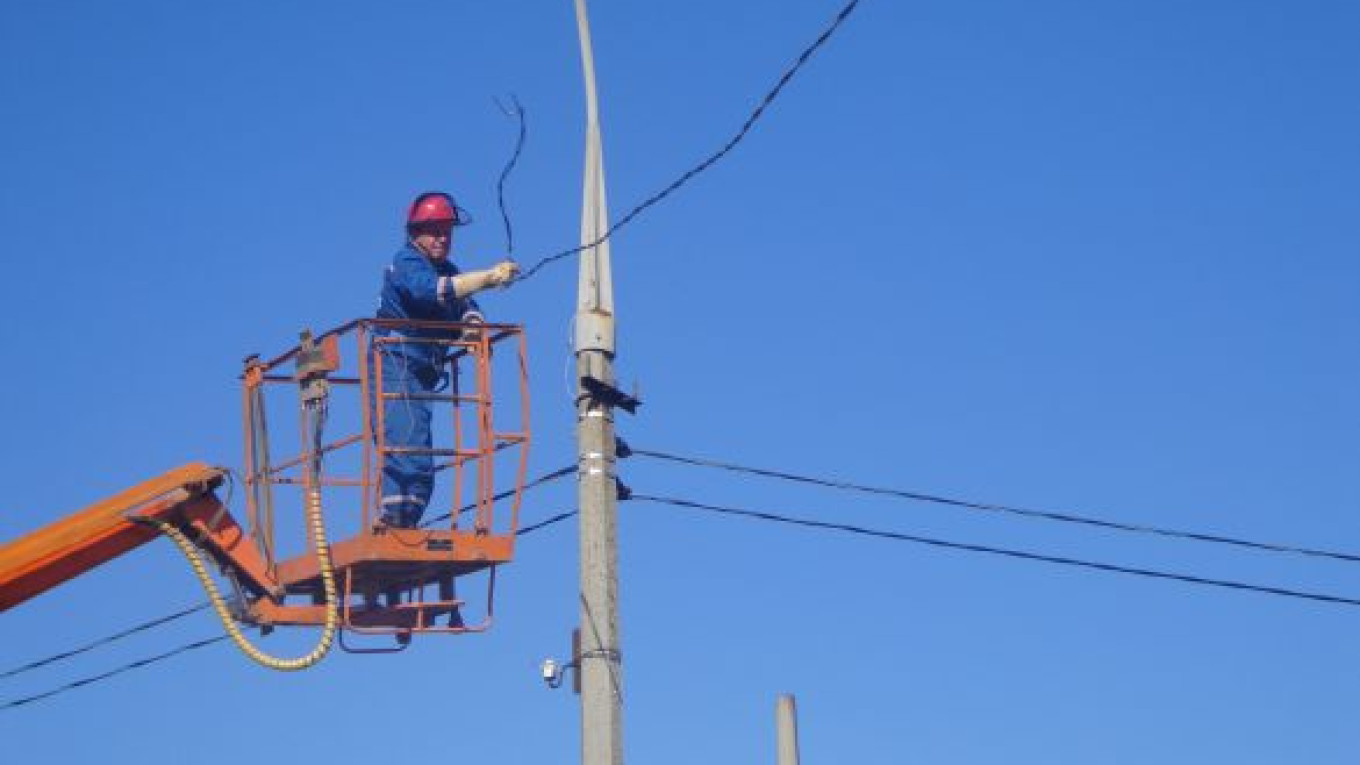A vendor watched quietly as an electrician participating in an "energy raid" scaled the electrical pole across from her kiosk and chopped off the wires that connected it to the main power supply. Just as quietly, the kiosk plunged into darkness and its beverage machine ceased its usual humming.
A man in the small crowd that gathered around the kiosk joked that locals will soon be lining up to snatch the last of the cold beverages, which were left to roast under the midday sun.
But by then, the electrician brigade had already moved on to its next target.
This raid on a small kiosk in the Belyaninovo village was part of the Chestny (Honest) Kilowatt campaign that the Moscow United Electrical Grid Company has organized against suspected energy thieves in the Moscow region.
The company conducted 622 such raids across the region last month. More than half of the raids uncovered cases of illegal energy use, amounting to 5,341 million kilowatts of stolen electricity.
Energy users who connect to power lines without proper agreements or manipulate their electricity counters cost the Moscow United Electrical Grid Company 32 million rubles ($1.1 million) in July alone, according to the company's official statistics.
The kiosk in Belyaninovo has been in operation for over a year and has received numerous warnings for its illegal connections to the local electricity lines, said Yevgeny Strunin, deputy director of the company's Northern Electric Networks branch.
"The battle against such users is necessary to make sure that all energy use is paid for and there is no thievery," Strunin said.
Company representatives monitor energy counters for any suspicious activity and then send out brigades to check documents and shut off power in case of illegal energy use. Small enterprises and owners of residential, single-level houses are the most common lawbreakers, Strunin said.
Fines for illegally connecting to power lines are 1,500 to 2,000 rubles for individuals and 30,000 to 40,000 rubles for corporations.
Strunin said the main goal of the raids is to educate people about illegal energy use.
"We don't have a punitive role," he said. "Our role, first of all, is to expose illegal users and encourage them to correctly fill out documents" that will allow them to legally have electrical service.
The message appears to be sinking in. Company representatives said they have noticed a drop in the number of energy thieves since the Chestny Kilowatt campaign began in 2008. During Thursday's raid in Belyaninovo, several suspected thieves were able to prove their innocence to the electricians by presenting proper documentation.
"People see that we are taking action," said Vadim Babeshkov, an engineer at the Moscow United Electrical Grid Company. "People talk with one another. One tells the other that these raids are happening. It works by word of mouth."
The company's northern branch currently conducts 10 or 11 raids per month, Babeshkov said.
A Message from The Moscow Times:
Dear readers,
We are facing unprecedented challenges. Russia's Prosecutor General's Office has designated The Moscow Times as an "undesirable" organization, criminalizing our work and putting our staff at risk of prosecution. This follows our earlier unjust labeling as a "foreign agent."
These actions are direct attempts to silence independent journalism in Russia. The authorities claim our work "discredits the decisions of the Russian leadership." We see things differently: we strive to provide accurate, unbiased reporting on Russia.
We, the journalists of The Moscow Times, refuse to be silenced. But to continue our work, we need your help.
Your support, no matter how small, makes a world of difference. If you can, please support us monthly starting from just $2. It's quick to set up, and every contribution makes a significant impact.
By supporting The Moscow Times, you're defending open, independent journalism in the face of repression. Thank you for standing with us.
Remind me later.


